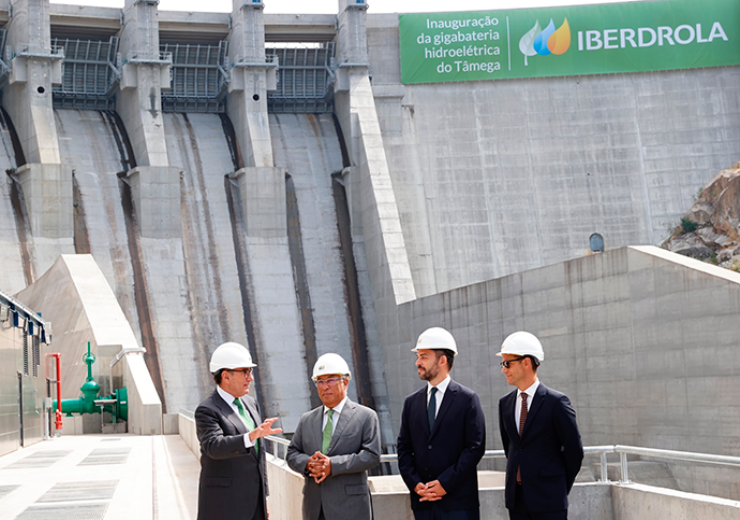Made up of the Alto Tâmega, Daivões, and Gouvães hydroelectric power plants, the Tâmega Gigabattery located in northern Portugal can store 40 million kWh of power, which is equivalent to the power consumed for 24 hours by 11 million people in their homes

The inauguration ceremony of the Tâmega Gigabattery was attended by Portuguese Prime Minister António Costa. (Credit: Iberdrola, SA)
Iberdrola has inaugurated the Tâmega Gigabattery, a 1.16GW hydroelectric storage project in Portugal, which has been developed for nearly eight years with an investment of over €1.5bn.
The inauguration ceremony was attended by Portuguese Prime Minister António Costa, Iberdrola chairman Ignacio Galán, and other delegates.
According to Iberdrola, the Tâmega Gigabattery can store 40 million kWh of power. This is equivalent to the power consumed for 24 hours by 11 million people in their homes, said the Spanish energy company.
The hydroelectric storage project will also help Portugal in offsetting the emission of 1.2 million tons of CO2 per year. It is said to increase Portugal’s total installed electrical power to 6%.
Built over the Tâmega River in northern Portugal, the Tâmega complex comprises three hydroelectric power plants, which include Alto Tâmega, Daivões, and Gouvães.
The biggest of the three is the 880MW Gouvães hydro-electric pumped power station, whose first 220MW turbine was connected to the grid in January 2022.
The Alto Tâmega and Daivões hydroelectric power plants have capacities of 160MW and 118MW, respectively.
Gouvães and Daivões began operations earlier this year, while Alto Tâmega is expected to become operational in spring 2024.
Owing to its pumping capacity, the Tâmega Gigabattery can store energy which can be utilised when needed the most. The project will see the addition of two associated wind farms with a combined capacity of 300MW.
Iberdrola stated: “This great engineering work, in which several thousand people have worked, will prevent the importation of more than 160,000 tons of oil per year, consolidating itself as a socio-economic and job creation engine in the region.
“Likewise, the construction of the complex in this area of northern Portugal has had an ambitious plan of social, cultural and environmental actions, which benefit seven municipalities, and to which more than 50 million euros have been allocated.”
